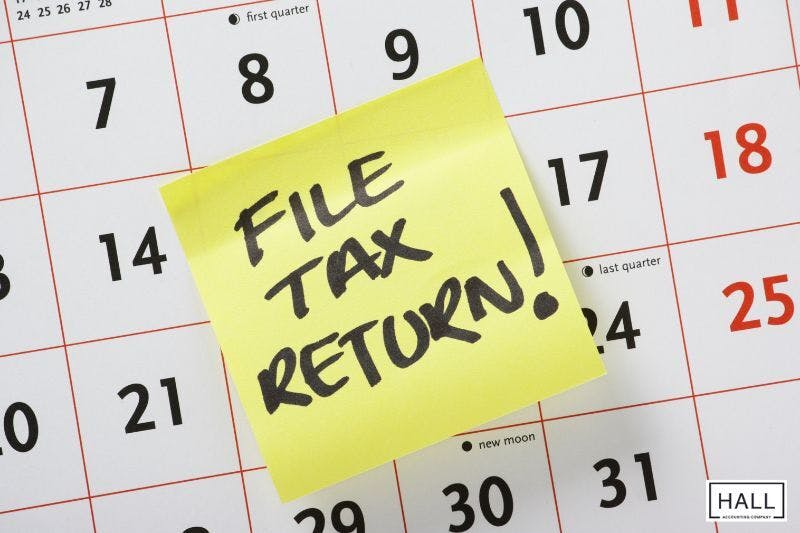
Navigating taxes can be one of the most overwhelming aspects of running a small business. For this reason, we will provide you with a small business tax prep checklist to ensure this tax season goes smoothly.
Welcome all small business owners! Today, we will dive into a really important topic for you - taxes! We know it's one of those topics that makes you want to run for the hills. But don’t worry - today, we’re going to simplify it all for you with our Small Business Tax Checklist.
By the end of our discussion, you’ll know exactly what steps to take to get your business ready for tax season and avoid stressful mistakes. Plus, we’ll be sharing some resources to help you navigate your federal taxes.
Understanding your tax obligations
First things first - what taxes do small business owners need to be aware of? Well, you’re not just dealing with personal income tax but also federal, state, and sometimes even local business taxes. There’s also self-employment tax, payroll tax if you have employees, sales tax for products and services, and possibly excise tax if your business operates in specific industries.
It sounds like a lot, right? This complexity can leave you feeling overwhelmed, but it’s critical to stay on top of your obligations. Missing a payment or filing the wrong form can lead to penalties or, even worse, an audit.
One resource that will help you manage the different aspects of tax is the IRS’s Small Business and Self-Employed Tax Center. However, here is a breakdown of the different types of tax and how they affect the small business owner.

Income Tax
Small business taxes are dictated by your business structure - whether it’s a sole proprietorship, LLC, partnership, S-corporation, or C-corporation.
Sole proprietors, single-member LLCs, and S-corporations report business income on their personal income tax return (Form 1040). These entities are called pass-through entities because the income is first reported at the entity level and then “passes-through” to the individual’s tax return on Schedule K-1.
C-corporations deal with double taxation, meaning they pay taxes twice. The first payment is made on the money the business makes, and the second payment is when they pay dividends to their owners (shareholders). The current federal tax rate for C corporations is 21%.
As we previously mentioned, federal tax isn’t the only income tax a small business is responsible for. Depending on your state, you may be required to pay state taxes.
For example, in the state of Texas, you do not need to submit a personal tax return, but in California, you will need to submit both state and federal income tax returns.
Self-employment Tax
Self-employment taxes cover social security and Medicare taxes, and if you’re self-employed, you’re responsible for both the employee and the employer portions. Many SBOs overlook this or underestimate how much they owe. The IRS provides a self-employment tax calculator on their website, which can help you avoid underpayment penalties. The current self-employment tax is set at 15.3%.
Payroll Tax

If you have employees, you’re required to file payroll taxes, including Social Security and Medicare. Accurate payroll records are essential and help you avoid issues during an audit.
Outsourcing your payroll to an accounting firm like Hall Accounting Company will ensure that your payroll is always accurate and that the correct taxes are withheld and filed. This greatly reduces your risk of penalties.
The Federal Unemployment Tax Act (FUTA) is only paid by employers who pay employees wages of $1,500 or more. FUTA differs from state unemployment taxes (SUTA) in that SUTA taxes are used to fund state unemployment programs. SUTA can range anywhere between 2% and 5% of an employee’s wages, depending on the state. Employers can claim a tax credit of up to 5.4% to lessen the burden of federal unemployment taxes.
Further reading: What is the tax rate for payroll?
Sales Tax
Sales tax rules vary by state, and if you operate across state lines, you may be required to file in multiple states. The Streamlined Sales Tax Governing Board offers resources that will help small business owners with their sales tax preparation. Also, using accounting software like QuickBooks will help you automatically calculate and file sales tax for you, reducing errors.
Excise Tax
An excise tax is a mandatory tax legislated by the federal government on certain products, services, and industries. If you operate in industries like tobacco, alcohol, or transportation, you will pay excise taxes.
It is best to consult a CPA that specializes in your industry to ensure you meet specific tax obligations, as these excise taxes can be quite complicated. SBOs may not be aware of these taxes until it's too late, so understanding them in advance can save you a significant hassle.
Property Tax
If your business owns a property, you may be obliged to pay state imposed property taxes (usually at city, county, or municipal levels). This can include land, buildings, and improvements made to land. These taxes are due annually or semi-annually. These taxes also extend to machinery, equipment, and inventory, and sometimes even to intangible property, like the value of a company’s patents, trademarks, investments, and goodwill.
_________________________________________________________________
A lot of business owners have come through our doors over the years because they didn’t know how to prepare for these taxes, and now they’re in debt with the IRS. Don’t let this be you. Come on board with Hall Accounting Company, and let us help you avoid nasty tax surprises.
__________________________________________________________________
Organize your records

Next on our checklist is keeping your financial record organized. Over the years, we’ve seen small business owners make the mistake of waiting until the last minute to gather tax documents. Don’t do that if you want to exit the tax season a sane person! Get into the habit of tracking your expenses, revenue, and receipts throughout the year.
Good record-keeping makes tax filing smoother and protects you in the event of an audit. A great system to use is QuickBooks Online or Xero, which automatically tracks everything in one place.
Here are some steps to help you stay organized during the year:
Digitize your documents - do this as soon as possible, even if you’re a sole prop. Paper receipts can easily get lost, making it difficult to track your expenses. AI automation has made the scanning of documents with your mobile phone super easy. So why be in the predicament of searching for lost slips when you can simply keep track of everything electronically?
Review your financial records monthly—Set time aside each month to review your income and expenses. Be disciplined about this throughout the year, and you’ll make your own life (or that of your CPA) much easier come tax season.
__________________________________________________________________
If you need help with your bookkeeping at any time, Hall Accounting Company offers a full-service solution for small business owners. This will keep your records clean, organized, and ready for tax time. Our team is ready to discuss how we can help you run your business finances more effectively.
__________________________________________________________________
Track your deductions and tax credits

One of the biggest ways you can save money is through tax deductions! Many small business owners miss out on hundreds or even thousands of dollars in tax savings simply because they don’t know what’s deductible. Some common deductions include office supplies, home office expenses, marketing costs, and even some travel expenses.
Here are some basic deductions and credits that can help you save money:
Home office deduction
To qualify for this deduction, you must use part of your home exclusively and regularly for business. The IRS allows two methods to calculate this deduction.
Motor vehicle expenses
If you use your vehicle for business, you can deduct either the standard mileage rate or your actual car expenses (gas, repairs, insurance). You must keep detailed mileage logs to ensure accuracy and compliance with IRS rules.
A lesser known credit regarding vehicles is the alternative motor vehicle credit tax credit given to individuals who purchase vehicles that derive their power from alternative energy sources. SBOs can file IRS Form 8910, Alternative Motor Vehicle Credit, to calculate and claim the credit.
Equipment and supplies
Office supplies and equipment like computers and furniture are deductible. In some cases, you could qualify for Section 179 of the IRS tax code, which allows you to deduct the full purchase price of qualifying equipment in the year it is purchased.
But here’s the thing: deductions can be tricky. If you don’t know what qualifies, you might either miss out or accidentally take a deduction you’re not entitled to. That is where the help of a pro comes in. Get a top accounting firm like Hall Accounting Company that specializes in uncovering those hidden deductions to jump in and help.
Estimate taxes
Now, if your business brings in any profit, you’ll need to make estimated tax payments. This is a big one that trips a lot of SBOs up. If you don’t pay these taxes throughout the year, you could be hit with a hefty penalty come tax time.
If you run a C Corporation and you think you'll owe more than $500 in taxes, you have to pay estimated taxes every quarter. For all other business structures, you need to pay estimated taxes, too, but only if you expect to owe more than $500 on your personal tax return.
Keep the following deadlines in mind if you have to make quarterly payments:
Jan 15, 2025: 2024 fourth quarter estimated taxes due
April 15, 2024: 2025 first quarter estimated taxes due
June 16, 2024: 2025 second quarter estimated taxes due
Sept 15, 2024: 2025 third quarter estimated taxes due
Complete your tax return

Tax deadlines are extremely important; failing to submit your tax return by the expected date will result in an IRS penalty. To avoid this, complete your return by the following dates (these may vary each year, so check the IRS website for updated information):
Jan 31: Deadline to send W-2s to your employees and 1099s to independent contractors. This is also the final day to submit copies of these tax documents to the IRS.
Feb 28: Deadline for companies to file their information return using a 1099 or 1096.
Mar 15: Partnerships, S corporations, and multi-member LLCs must file their yearly tax return.
April 15: Single-member LLCs, sole proprietors, and C corporations (that follow the standard calendar year for accounting).
April 15: First quarter estimated tax payment due.
June 16: Second quarter estimated tax payment due.
Sept 15: Third quarter estimated tax payment due.
Sept 15: Partnerships, S corporations, and multi-member LLCs who received an extension must file their return by this date.
Oct 15: Single-member LLCs, sole proprietors, and C corporations who received an extension..
Don’t go it alone - get help from a CPA
We’ve mentioned it several times throughout this discussion, but it’s worth saying it again - don’t try to do this all on your own if you have the budget to hire a professional. Taxes can be complicated, and one mistake could cost you much more than hiring a pro.
Hall Accounting Company is dedicated to helping small business owners like you with their accounting and taxes. We know that every business is unique, and we offer personalized strategies that will work for you. Whether you’re just starting out or have been in business for years, our team will ensure your taxes are correctly filed and that you’re taking advantage of every deduction and credit.
Complete your taxes with confidence
So there you have it - your complete Small Business Tax Checklist! We know taxes can be daunting, but with a little pre-planning and the right help, you can tackle them confidently. Don’t forget to check out the resources we mentioned during our discussion - and if you need one-on-one attention, reach out to us. We’ll make tax season stress-free and manageable.
Thanks for your time, and if you found our checklist helpful, share it with other small business owners who could use help with their taxes.
Until next time - happy filing!